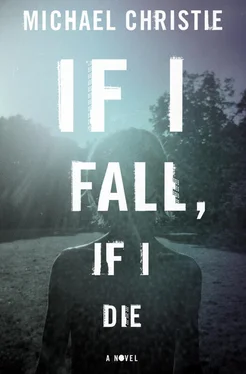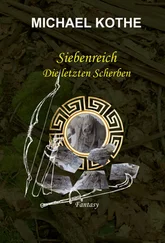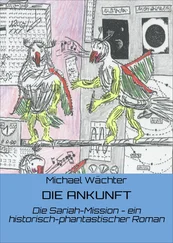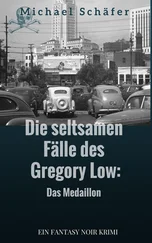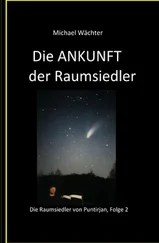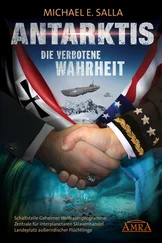That afternoon, Mr. Miller asked Will to stay after class. He’d seemed a little ragged all day and was sipping from a mug that wasn’t steaming and smelled vaguely of the fluid Will’s mother used to clean her silver jewelry. “Will, I wanted to say you’re settling in just fine here,” he began. “Your work is improving. I can even read your printing now, which is a minor miracle.”
Will said thanks and turned to go. Time spent in the direct spotlight of any adult always sent him cowering for the anonymity of a herd of children.
“Another thing, Will. I thought I recognized your last name — who wouldn’t in Thunder Bay. But I wanted to say I’m happy your mother decided to move back home from — where was it? San Francisco? I heard she’d done well for herself. ’Course the only way to accomplish that nowadays is to leave,” Mr. Miller said, letting out the fumes of a great sigh that waggled the pink stalactite between his front teeth as he looked out the window to the lake. “I worked under her father and remember her and her brother from the harbor and, well, it was a shame. What happened. I think all of Thunder Bay … Well, we felt for those two.” Then his voice went gravelly. “Coming back took guts.”
Will did the chuckling thing he’d picked up from Angela. “Sorry, but you’ve got the wrong Cardiels, sir,” he said. “It’s just me and my mom. Always has been. And she grew up in Toronto.” To this Mr. Miller apologized, and Will made his escape.
When the biggest snow came, a billion flakes corkscrewed slow to the ground. Cars disappeared. Will watched his neighbors dent their truck with shovels trying to locate it. Out back, Will found the mud on the creek bank flash-frozen and iron-hard like the gravied entrée of a TV dinner. He watched ice creep out from its banks, first like awnings, then with icy fingers across the narrows.
It was thanks to these winter investigations that Will discovered the boot tracks in his backyard. They were too big to be Marcus’s, nearly double the length of his own, and fresh. They came up from the creek through a gap in the hedge, then stopped about ten feet from the window beneath San Francisco, right near where he’d found Marcus. The closest footprints were packed tighter than the others, toes aimed houseward. The person had stood in that spot for some time, observing, and at the midpoint of the tread, a distinct hexagonal shape was sculpted deep and clean in the snow.
Will followed the tracks westward along the creek, down toward the lake, wondering if it could’ve been a yeti — who weren’t real, but still — or a deliveryman, or the ferrety gas meter reader, or perhaps one of the gruff, unemployed men who rang their bell with pitifully affordable offers to plow their driveway, men his mother always hired and tipped extravagantly. But what would any of them be doing approaching their house from the creek?
Emerging from the woods near the hockey arena, Will lost the trail in the tire print nebulas of its parking lot.
Today she ended her Session early when an image of her twin brother’s wrecked body lifting from the black lake cut into her thoughts and left her nauseous. While cleaning up at the sink, she recalled her very first glimpse of Will’s blood, in the hospital mere minutes after his birth. A test for blood sugar, the nurse said, roughly squeezing a lustrous ladybug from his pricked heel. Arthur, already depleted by the ordeal and itching to return to his drafting table, went ghostly when he saw it, but Diane’s only thought was: A more precious substance I cannot imagine . The blood was so recently hers — she wondered if she could still rightly call it her own — and had only become more valuable now that it had left her.
Initially at least, she was happy having a boy. Boys seemed more durable, less finicky. Will’s birth somehow eclipsed the tragedies of her past — her chief responsibility now being to ensure he didn’t taste abandonment as she had. He fascinated her like no book or film or idea had before. She spent hours watching him in his crib, parsing his overwhelming actuality. Each night she read to him, his eyes waltzing in wonder, until her throat was hoarse, until his book’s covers detached, until she’d memorized every word, then until he’d memorized them himself. “That?” was his first word, said pointing at a page. They spent hours speculating what would happen after the story ended. She ceased reading adult books entirely, her most private thoughts taking the shape of children’s stories. Gone were ideas for films, the cinematic visions once gifted to her upon waking or during long walks in the city, but she offered her mind gladly to the chaos a child brought, to the endless tidying and banter, to the horrors these perform on creative inspiration.
Then came learning to walk, all that totter and tumble. Will’s first unmoored voyage from coffee table to couch —relentless was a word whose true meaning he’d taught her. The cracked heads, bashed elbows, and rug burns; the way Will rose, bloody dirt in his teeth, that little lung-sucking storm before the big show. Motherhood acutely sensitized her to the menaces of the world: the murderous table corners, the seduction of electrical outlets, the friendly dogs that snap gladly at tiny fingers.
How precariously blood moves through us, she thought now soaping her shaking hands in the bathroom. We spring a small leak and lose ourselves to the ground. And how dearly we depend on the lone muscle convulsing in our chests. On the two flimsy balloons that so narrowly rescue us from suffocation. On the wobbly pâté in our heads that preserves our very selves. All of it so ad hoc, so absurd, so temporary.
In the hallway she heard a curious scratching emanating from Will’s studio — New York, he called it. A welcome sound. With Will away at school during the day now, like a planet unhitched from orbit, the house had fallen into gloom and silence, even though she’d begun leaving the kitchen radio on and often consulted Will aloud while vacuuming or staking her window-box tomatoes as though he’d never left. Still, the days felt doubly long. She missed his industry and his mind-bending questions (“Is it murder if your friend agrees to let you cut off his hand and then you strangle someone with it?”) and had to settle for burying her face in the plush, boyish scent of his bedding several times per day.
She opened the door to New York and found him rubbing 40-grit sandpaper over the grips of the new snow boots she’d ordered, a prisoner’s file beside him, blue rubber bits splayed on his easel and already ground into the carpet at his feet.
“What’s going on, Will?”
“Oh, hey,” he said, startled for a second. Then it passed. “Grips are actually really hard to get off,” he continued, returning to the task.
“But Will,” she said, pulling a troubled breath, “you’re destroying your boots. We just had those delivered, and now you’re—”
“—Making them better,” he interjected.
“Grips are supposed to … what? Any idea?” she said with an ineffectual elastic snap. And in an instant she saw Charlie hurtling down a still-icy Machar Avenue in early spring, pedaling for broke on a bicycle he’d only just learned how to ride, his coarse hair a wildfire in the wind, with Theodore jogging behind bellowing complex instructions and warnings, mere seconds before Charlie would crash into a yellow hydrant, folding his nose flat to his cheek and forcing their family’s painful return to the hospital, where their mother had taken her last breath not three weeks previous.
“I’m making them more exciting,” Will said.
“ Grip , Will. That’s what they do ,” she said.
Читать дальше
